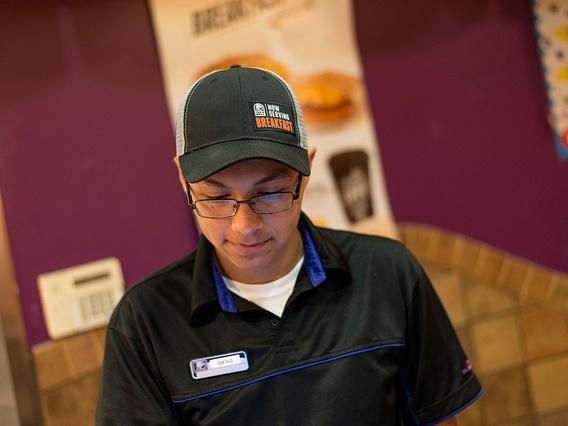
Section Branding
Header Content
WORKING: Why Young College Grads Can't Find Work
Primary Content

If you have a “5” in front of your age, our Working guy says you’re in trouble when it comes time to find a job.
An avalanche of data is starting to show that having a “1” or a “2” in front of your age might not be so great either.
Nearly 21 percent of young people aged 16 to 24 are unemployed in Georgia, according to data from the U.S. Bureau of Labor Statistics. Nationally, the rate is just over 14 percent.
Part of the problem is that employers aren’t creating many new jobs, said Brandon Smith, a career coach and business professor at Emory and Georgia State universities. Plus, their current workers aren’t leaving to go to other companies. And the jobs employers do have open attract a large number of more-experienced candidates than these teens and early 20-somethings.
“Employers don’t want to hire someone who hasn’t already done the job before,” Smith said. “Employers are saying, ‘We don’t really have the resources to train you. And on top of it, I’ve heard your generation needs a lot of feedback, needs a lot of coddling, needs a plan. I don’t have time for that. I think I’m going to hire this guy over here who’s already got some experience.’”
The young, would-be workers’ approach to their search isn’t helping, Smith said.
“There’s actually a lot of jobs in Georgia, all that are looking to hire these up-and-comers who don’t have experience,” he said, indicating there’s demand in manufacturing, retail, and healthcare, to name a few industries. But: “The folks in that generation—not all, not every one of them—largely, don’t want to take those entry-level jobs.”
Rather, they want to jump into mid-level positions, Smith said, and they are willing to wait.
“Their parents are letting them wait. They’re living in the basement. Food’s paid for. They’re comfortable. So there’s no incentive to go out and get a job,” he said.
From Smith’s perspective, fixing the youth unemployment problem in Georgia—and across the nation—is fairly simple. Young people looking for jobs should take whatever they can find.
“I say [that] not from the curmudgeon/grumpy old dad. I say it from the perspective of, to get a better job, you have to, practically, be able to talk about the stories and what you did in the last job,” he said. “You need to start collecting stories; it doesn’t matter how much you get paid.”
Brandon Smith teaches about leadership, communication, and workplace culture at Emory University's Goizueta Business School. More of his advice is on his blog and at theworkplacetherapist.com. While you’re there, ask him your workplace or career question. We might answer you in a future radio segment.
Tags: unemployment, teen unemployment, career counseling, Brandon Smith, workplace, working, career, youth unemployment
